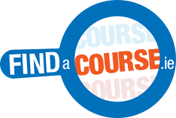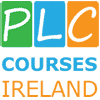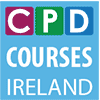Course description
Course Details
This programme is designed for people who wish to improve their skills or gain knowledge in child and youth counselling in specific areas of the care facilities. It will be helpful to anyone who is or who wishes to undertake any form of caring role, which involves children, and provides the skills to provide counselling for those in their care. The objectives of the course are: (1) to develop an understanding of the value of counselling in a variety of child caring roles, (2) to understand a range of ethical and cultural issue related to counselling, (3) to develop the skills to offer counselling for those affected by substance misuse, child abuse, HIV/AIDS and grief, and (4) to develop a range of skills to be able to offer career and vocational guidance to children.
Your Tutor will support you throughout the duration of the course. You complete the course by undertaking activities and assignments. Our student support team are also available for any other queries that you may have whilst completing your course. You can be assured that support is available for your course, so there is no need to struggle or feel isolated during your studies.
By choosing to study this course with CMIT, Students have 24×7 access to CMIT eLearning for the duration of the course. This includes a comprehensive Course Manual, Video, Quizzes and personalised Tutor Support. The course documentation for this course is detailed and easy to read. You will also be able to upload assessments online and receive online feedback. You can use the eLearning system from any computer that has internet access.
Topics Covered in this Course
Unit 1: Introduction to Care Counselling
Explain the importance of counselling
Explain communication and its role in counselling
Demonstrate understanding of the different forms of counselling.
Conduct a counselling session.
Unit 2: Ethical and Cultural Issues in Counselling
Explain why children hold a special position in society and discuss their rights and needs.
List ethical values associated with counselling children.
Discuss the impact of culture and gender in counselling.
Explain the role of the carers values and attitudes in counselling.
Identify some of your own deeply held beliefs and values and describe how they might influence a counselling decision
Unit 3: Behavioural Counselling
Define behavioural counselling.
Describe factors involved in effective behavioural counselling and guidance; understanding self, understanding and learning about children, creating a positive environment.
Recognise types of problem behaviour and identify strategies to deal with them.
Explain the importance of referrals and collaboration with relevant individuals and agencies.
Unit 4: Dealing with Child Abuse Issues
By the end of this Unit you will be able to:
Identify and describe various forms of child abuse.
Identify signs and characteristics of an abused child.
Explain the various coping strategies employed by survivors of abuse.
Develop effective intervention programmes for abused children.
Outline the referral system available for abused children in your community
Unit 5: Dealing with Substance Abuse
Describe substance abuse and identify substances that are abused
Describe signs/symptoms in children who abuse substances
Explain the consequences of substance abuse
Identify strategies that assist children who abuse substances
Organise a programme for the prevention of substance abuse
Identify available referral networks for substance abuse.
Unit 6: Counselling for the effects of HIV/AIDS
Explain what the HIV/AIDS virus is, how a person can be infected by it, and what symptoms he/she may experience.
Explain cultural beliefs and practices that contribute to HIV/AIDS.
Identify children who are infected by HIV/AIDS and provide help to them through counselling.
Identify available networks and resources for referral of children infected and affected by HIV/AIDS.
Unit 7: Grief Counselling
Define loss, bereavement, grieving and mourning
Outline the process of grieving
Explain the role of culture in bereavement
Identify strategies that you can use to help children and youths who have suffered the loss of a loved one
Unit 8: Career and Vocational Counselling
Differentiate between a career, a vocation, and life skills.
Identify sources of information and disseminate information on careers and life skills.
Discuss gender biases and stereotypes in vocational and career choices and suggest ways of eliminating them.
Recognise the talents of children and youth.
Advise youth on career programmes and help them to plan for these.
Who should complete this course?
People considering a career in Counselling.
Parents, Teachers and Childcare workers.
People who wish to gain a professional, accredited qualification in Child Counselling and wish to study at their own pace, and in their own time.
Entry Requirements / Prerequisites
None.
Assessment
This course is assessed through a series of tutor marked assignments. There is no exam with this course.




 Distance Learning and Online Courses are offered in a number of different formats, these include correspondence courses (by post), online via computer or a combination of online and classroom instruction (blended learning).. View
Distance Learning and Online Courses are offered in a number of different formats, these include correspondence courses (by post), online via computer or a combination of online and classroom instruction (blended learning).. View  Further Education and PLCs (Post Leaving Cert Courses) have become a popular alternative to the CAO system here in Ireland. PLC Courses are validated by QQI (Quality & Qualifications Ireland) at levels 5 & 6 of the NFQ.. View
Further Education and PLCs (Post Leaving Cert Courses) have become a popular alternative to the CAO system here in Ireland. PLC Courses are validated by QQI (Quality & Qualifications Ireland) at levels 5 & 6 of the NFQ.. View  Continuous Professional Development (CPD) helps to keep job skills and professional knowledge up to date and ensures the standard of registrations & qualifications are maintained.. View
Continuous Professional Development (CPD) helps to keep job skills and professional knowledge up to date and ensures the standard of registrations & qualifications are maintained.. View  Evening courses and part time learning options are a great way to enhance a CV, to socialise and make friends, as well as learn something completely new. There are an abundance of night courses and evening classes available.. View
Evening courses and part time learning options are a great way to enhance a CV, to socialise and make friends, as well as learn something completely new. There are an abundance of night courses and evening classes available.. View